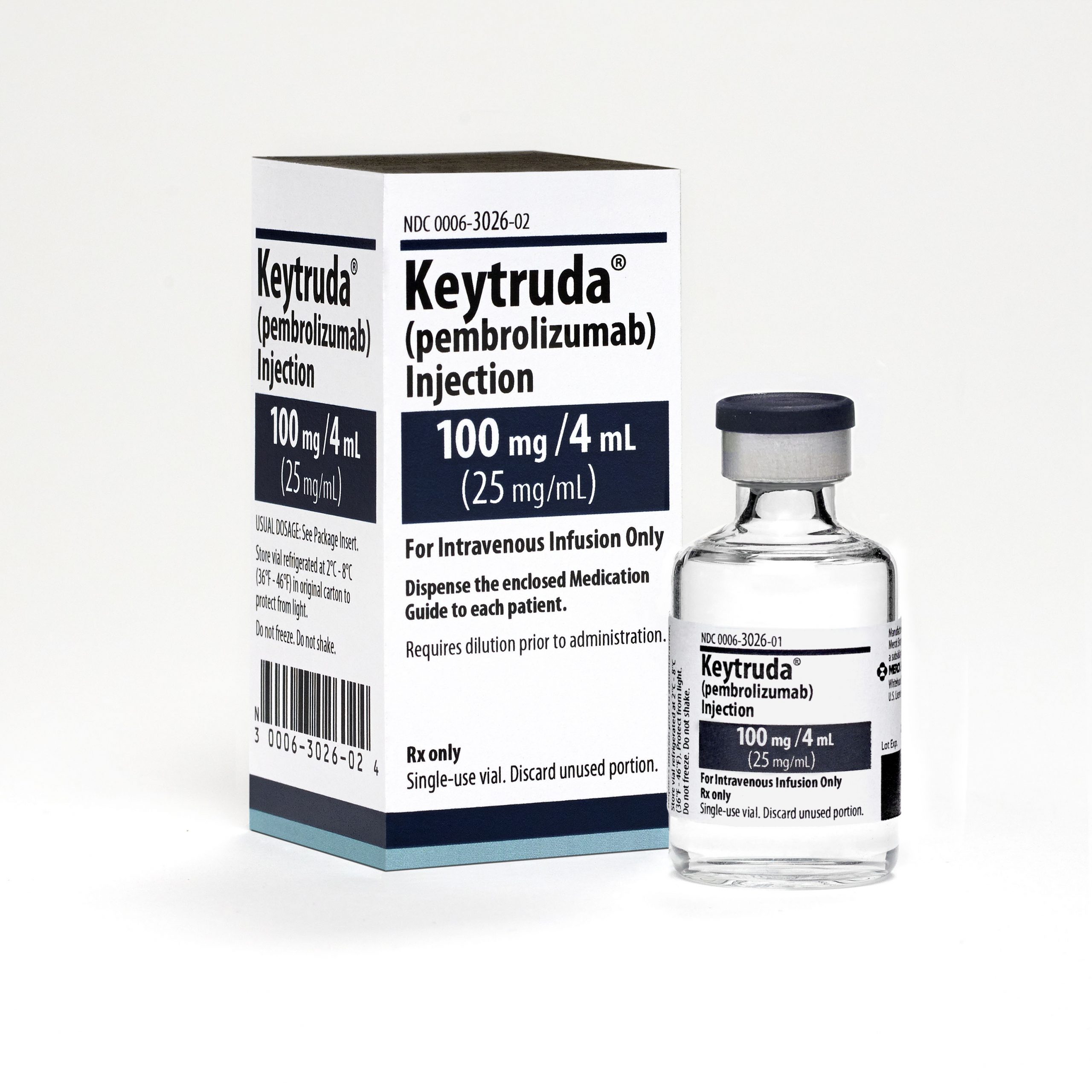Merck & Co's Keytruda could catch BMS' rival with new lung cancer use

Merck & Co's Keytruda blockbuster immunotherapy could have yet another use, after it significantly boosted survival in patients with untreated squamous non-small cell lung cancer, in combination with chemotherapy.
The phase 3 KEYNOTE-407 trial compared the combination of Keytruda and carboplatin-paclitaxel or nab-paclitaxel (Celgene's Abraxane), with patients receiving either chemotherapy agent alone.
Top line results published ahead of a more comprehensive data readout at the American Society of Clinical Oncology (ASCO) show the combination significantly improved both overall survival and progression-free survival.
The data from an interim analysis of the trial in 560 untreated patients with metastatic squamous NSCLC were so strong that Merck & Co has already filed them with the FDA, to add yet another indication to Keytruda's label.
The safety profile was consistent with that previously observed in lung cancer, Merck & Co added.
Keytruda is close to catching Bristol-Myers Squibb's rival PD-1 checkpoint inhibitor in sales: in Q1 Merck's drug generated revenues of just over $1.46 billion, while BMS' Opdivo brought in $1.51 billion during the same period.
Opdivo (nivolumab) was the first PD-1 drug to hit the market after approval in December 2014, stealing a march on Keytruda, which was approved nine months later.
But since then Keytruda has been steadily catching Opdivo, and has an advantage in that trials show it works in first-line lung cancer, a very lucrative indication where BMS' drug has struggled to produce results.
The new indication in squamous disease could finally push Keytruda ahead in sales after several years playing catch-up.
[caption id="attachment_24785" align="alignnone" width="140"] Merck & Co's Dr Roger Perlmutter[/caption]
Merck & Co's Dr Roger Perlmutter[/caption]
Dr Roger M. Perlmutter, president, Merck Research Laboratories, said: “As first-line treatment, Keytruda in combination with traditional chemotherapy has now demonstrated an improved survival benefit, compared to chemotherapy alone, in metastatic lung cancer patients with squamous histology.”
“We look forward to presenting the overall survival and progression-free survival findings from KEYNOTE-407 at the 2018 ASCO Annual Meeting, and are grateful to the patients and investigators for their important contributions to this pivotal study.”











